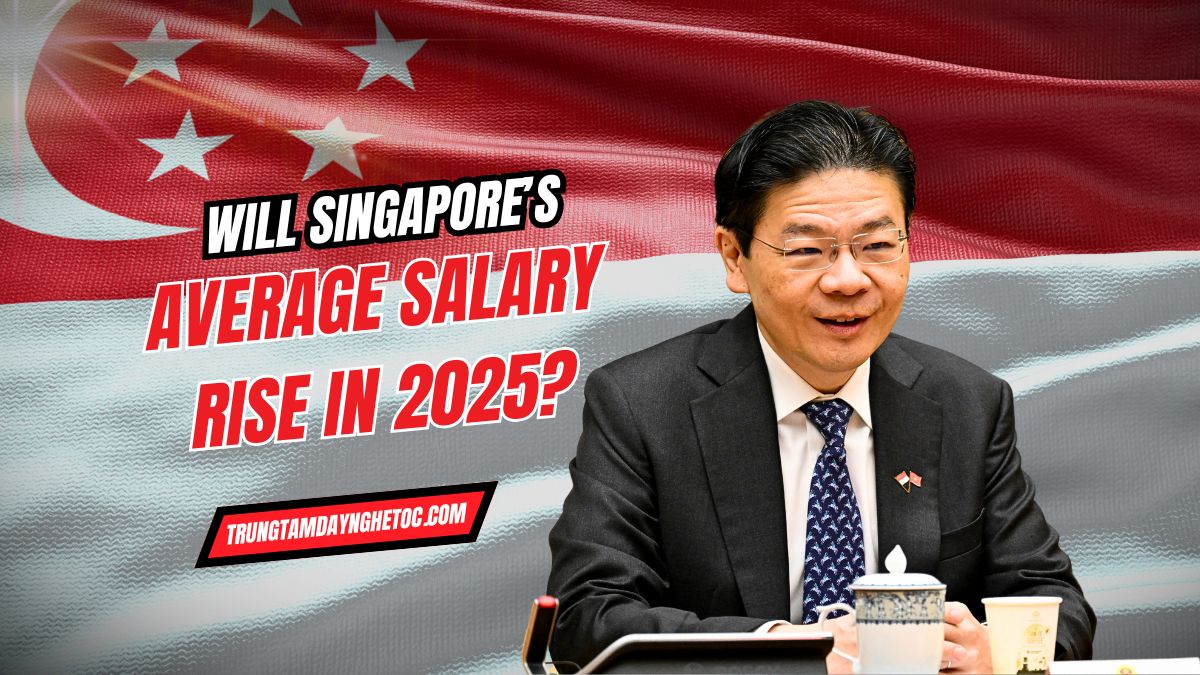Will Singapore’s Average Salary Rise in 2025? Here’s What You Need to Know!
As Singapore’s economy adapts to post-pandemic realities and global shifts, a critical question arises: Are average salaries in Singapore increasing in 2025?
With the cost of living on the rise and competitive talent markets reshaping workforce dynamics, understanding the expected salary growth is key for anyone navigating career moves or budgeting for the year ahead.
This guide delves into the projected wage trends, the sectors leading the surge, external economic influences, and strategic tips to position yourself for a pay raise.
Singapore Salary Forecast 2025 – At a Glance
| Key Insights | Details |
|---|---|
| Expected Salary Growth Rate | 4.1% average increase projected in 2025 |
| Top-Gaining Sectors | Finance, Healthcare, Technology, Real Estate, Consumer Goods |
| Slower-Growth Sectors | Aerospace and Energy |
| Average Individual Raise | Between 2% and 5%, with some industries offering even more |
| Major Influences | Inflation, global trade shifts, demand for skilled labor, government efforts |
| Data Sources | Projections from Mercer, HR firms, and government insights |
Why Are Singaporean Salaries Rising in 2025?
1. Demand for Skilled Talent
Industries like technology, fintech, AI, and healthcare are expanding rapidly, increasing demand for skilled professionals.
2. Post-Pandemic Economic Adjustments
The lingering effects of COVID-19 have influenced global wage adjustments, with Singapore maintaining its position as a resilient economic hub.
3. Government Initiatives
Policies aimed at fair wage distribution and workforce upskilling (e.g., SkillsFuture) are directly impacting salary increases.
Projected Salary Growth by Sector
1. High-Growth Industries
- Finance & Banking: Salaries could rise by 5% or more as demand for investment and financial experts surges.
- Technology & IT: With digital transformation accelerating, software engineers, data analysts, and cybersecurity experts may see 4–6% raises.
- Healthcare: Driven by an aging population, expect 4–6% increases for doctors, nurses, and specialists.
- Real Estate: Projected growth of 3–5% due to strong property demand.
- Consumer Goods & Retail: Rebounding consumer demand boosts 3–4% salary increases.
2. Slower-Growing Sectors
- Aerospace & Energy: Wage increases limited to 2–3% due to slower recovery and investment.
Salary Growth by Experience Level
| Experience Level | Expected Growth (2025) | Top-Performing Sectors |
|---|---|---|
| Entry-Level (0–2 years) | 2% – 4% | Tech, Finance |
| Mid-Level (3–7 years) | 4% – 5%, higher with specialized skills | All high-growth sectors |
| Senior-Level (7+ years) | 3% – 5%, more for department leaders | Healthcare, Finance, Tech |
The Role of Inflation and Global Trends
Although inflation in Singapore is relatively controlled, rising living costs in areas like food, transport, and housing are putting pressure on employers to offer higher wages.
Additionally, global uncertainties, including geopolitical tensions and fluctuating trade conditions, may influence salary stability, especially in export-dependent sectors.
How to Maximize Your Salary Potential in 2025
1. Upskill Continuously
Specialize in emerging tech, digital tools, and healthcare practices to align with high-paying job demands.
2. Expand Your Professional Network
Leverage LinkedIn, industry events, and mentorships to uncover better career opportunities.
3. Master Salary Negotiation
Research market salary data, quantify your achievements, and present a clear case during performance reviews.
4. Consider Career Realignment
Shifting into a higher-growth industry like tech or healthcare can result in a significant wage boost.
How Singapore Compares Globally
| Country | Projected 2025 Salary Growth | Notable Trends |
|---|---|---|
| Singapore | 4.1% | High demand in finance, tech, healthcare |
| United States | ~3.5% | Wage growth linked to inflation and skills |
| United Kingdom | 2–3% | Modest increases amid economic pressures |
| Australia | 3–4% | Stronger growth in tech and education sectors |
Government’s Role in Wage Progression
The Singaporean government continues to drive equitable wage increases through initiatives like:
- SkillsFuture: Encouraging professional development.
- Fair Consideration Framework (FCF): Promoting fair treatment in hiring and compensation.
- Productivity Solutions Grant (PSG): Supporting SMEs in improving employee efficiency and earnings.
Will Technology Impact Salaries Long-Term?
Yes. Roles focused on repetitive tasks may face salary stagnation or automation risk. However, careers in AI ethics, data science, robotics, and machine learning will likely command premium pay.
Non-Monetary Benefits: The New Salary Booster
As salary growth becomes more competitive, companies are emphasizing work-life balance and employee wellness:
- Flexible hours and remote work
- Health insurance and paid time off
- Mental health and wellness programs
These employee benefits are fast becoming essential components of compensation packages in 2025.
The outlook for Singapore’s average salary in 2025 is optimistic, with a 4.1% overall growth driven by rising demand for skills, economic resilience, and proactive government support.
Whether you’re planning your next career step or aiming for a raise, aligning with the country’s high-growth industries and remaining adaptable through upskilling are your best strategies for securing a bigger paycheck in the year ahead.
FAQs
Which sectors will see the biggest salary increases in Singapore in 2025?
Finance, technology, and healthcare are expected to lead the way with salary increases between 4–6% due to high demand for skilled talent.
How can I prepare for a salary raise in 2025?
Focus on upskilling, staying updated with market trends, networking, and being prepared to negotiate based on your value.
Will inflation cancel out salary increases?
While inflation impacts purchasing power, projected salary growth of 4.1% is expected to outpace basic cost increases in most sectors.
